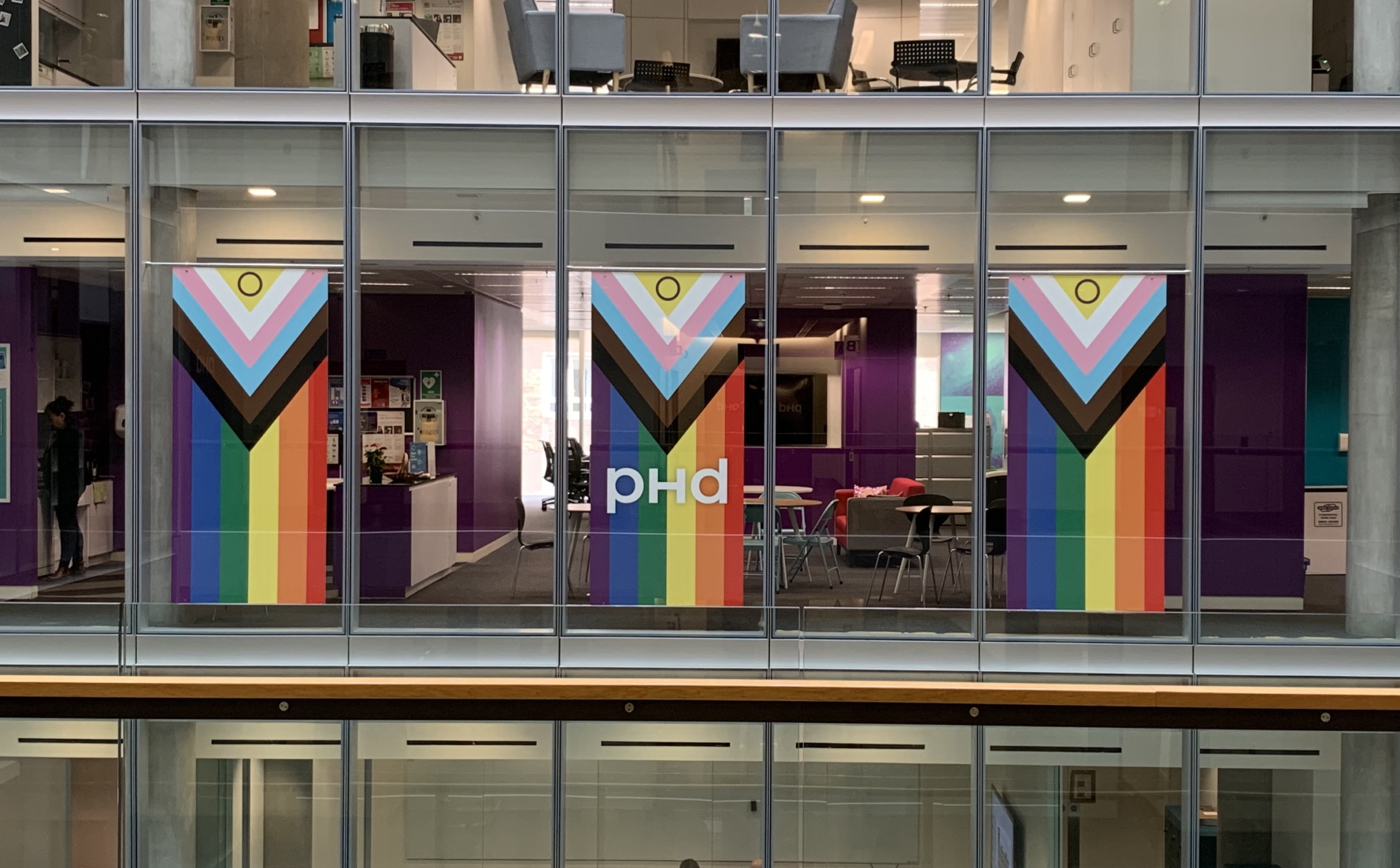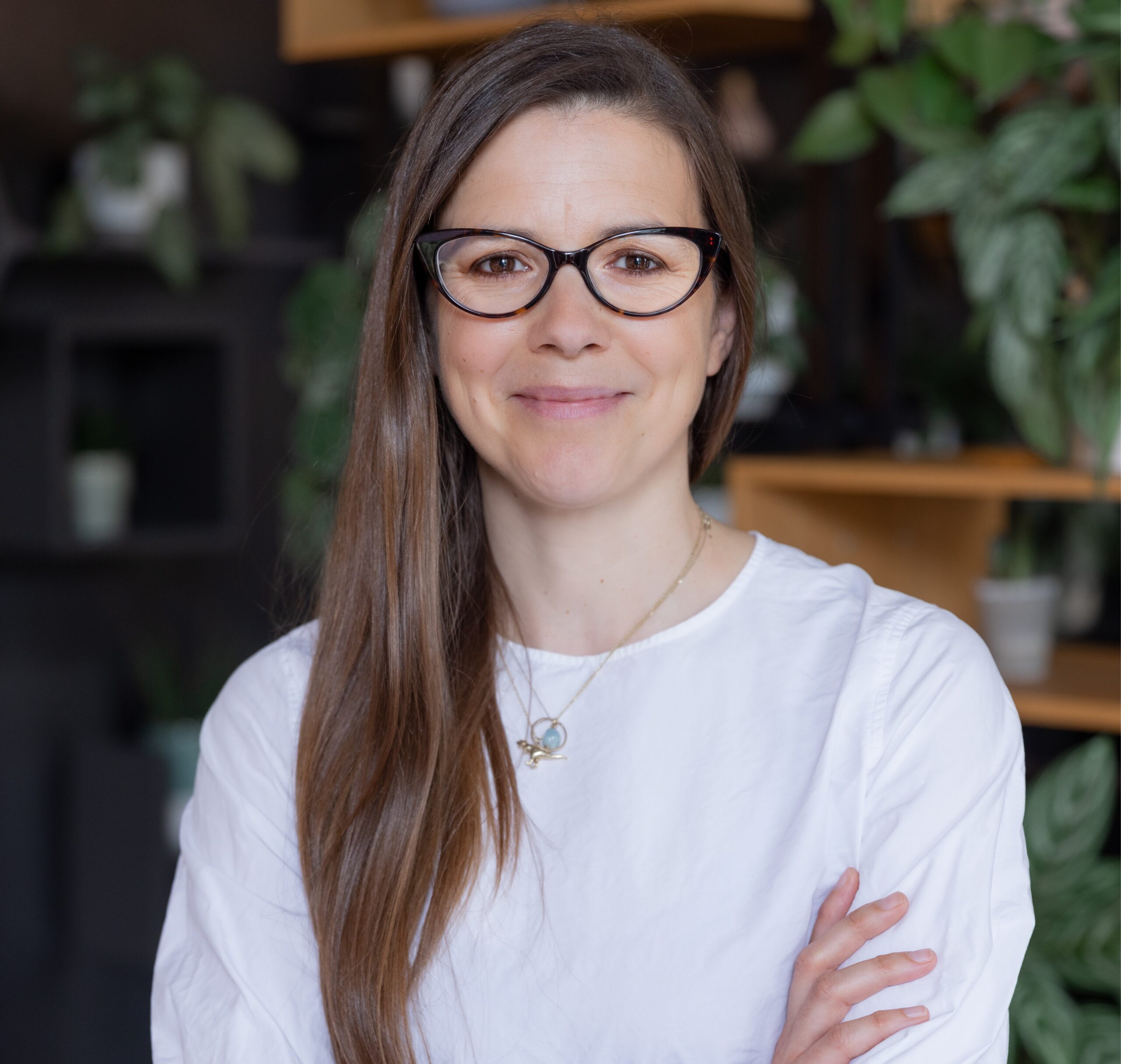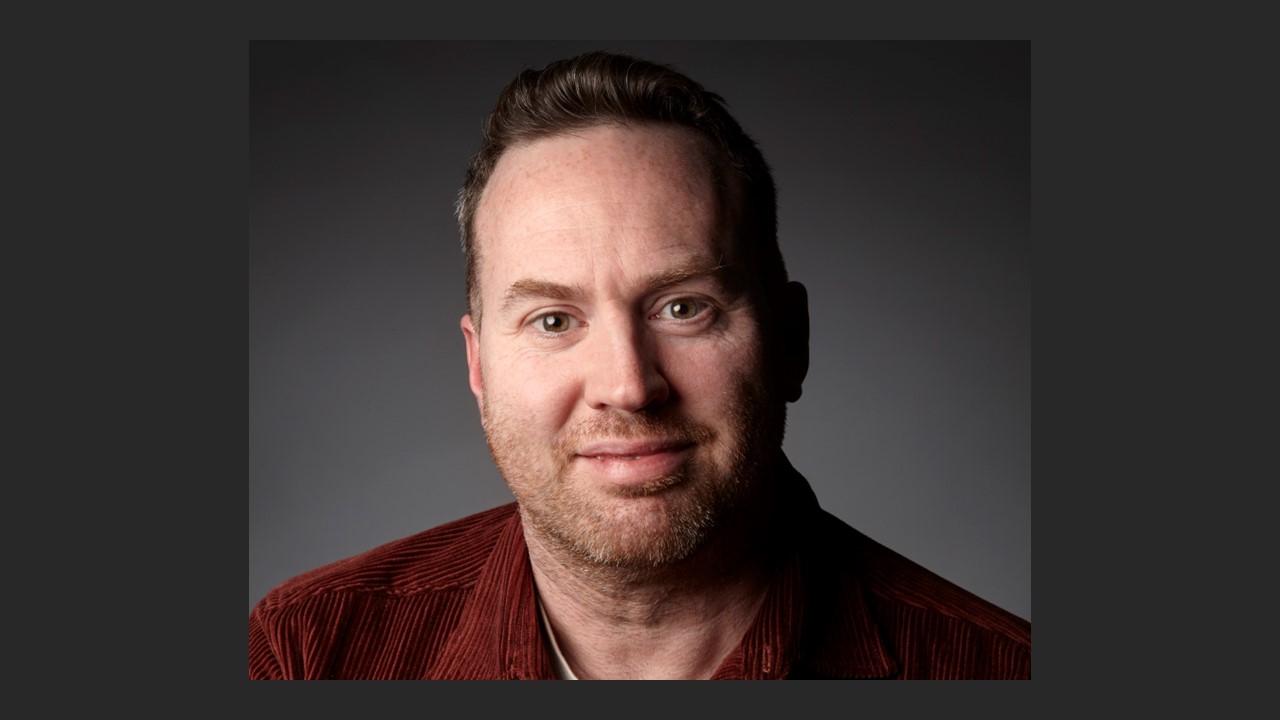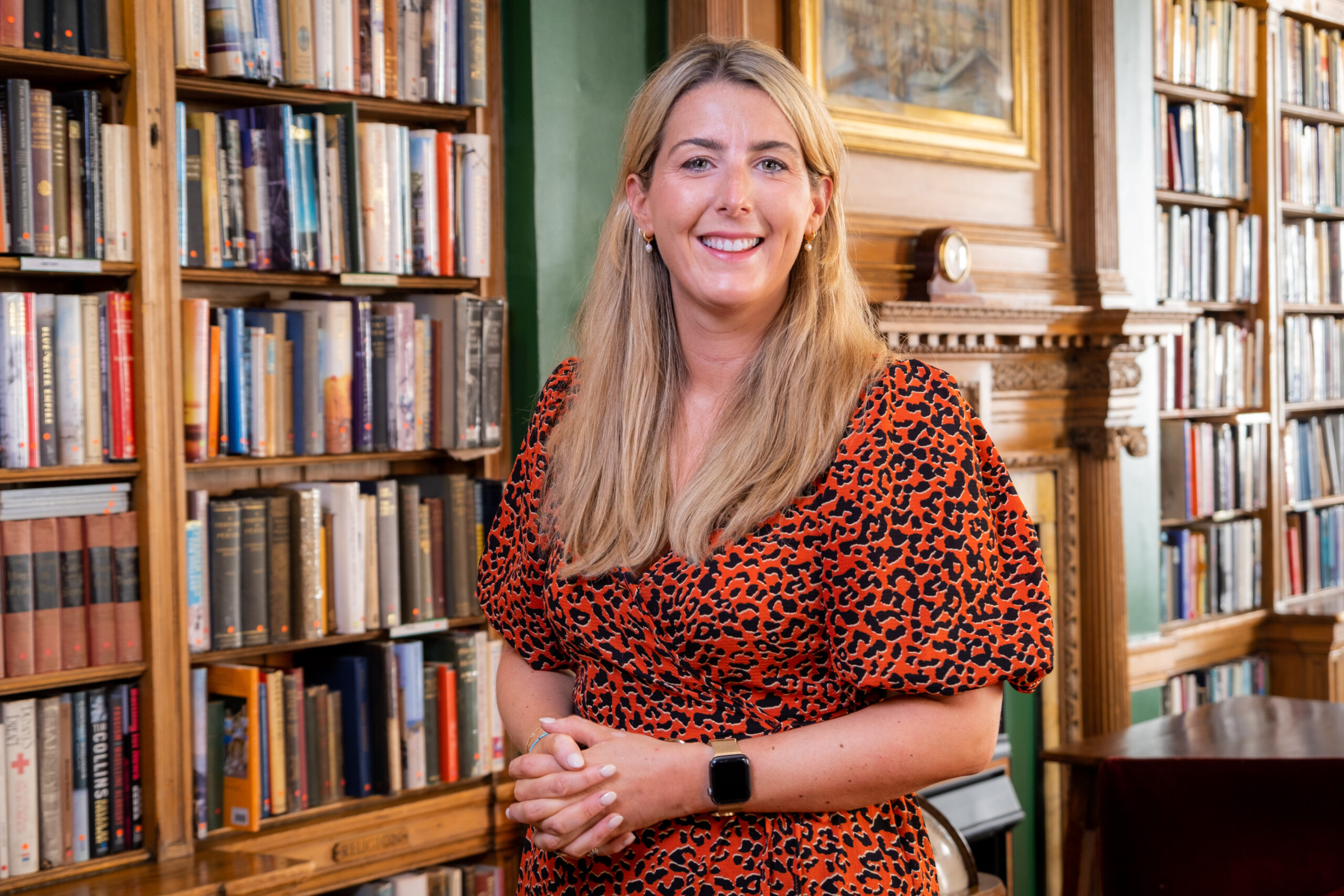Written by Alice Hadley, Marketing Manager PHD UK.
There were laughs (refreshing, given the nature of the conversation), there were tears (mainly mine) and there was wholehearted applause throughout this moving Pride Panel session. Five very brave, very different, PHD employees volunteered themselves to discuss various LGBTQ+ topics in our Pride Panel, to kick off our summer long Pride celebrations. Questions were directed by our very own Co-Chair of our MINDS mental health team – and now Marketing, Wellbeing and D&I partner at PHD – Emma Flaxman. For reference, all panellists were asked beforehand, which questions they were/were not comfortable addressing, creating as safe a space as possible for our panellists to have an open, honest, and sometimes raw conversation.
The Panel
Firstly, I’d like to introduce the PHD UK + PHD Global panellists.
We have PHD UK’s CEO, Ali Reed. As many of you know by now, Ali identifies as bi-sexual female. She came out to family and friends in her 20’s but only came out at work when she was 41.
Sam Hurren joined PHD in 2018 and works as Business Director on WB. Sam identifies as gay male and came out when he was 24.
Reece James-Hope is a Media Assistant in the Local Team. They identify as pansexual and came out when they were 13 years old. When Reece was 26, they realised they are non-binary.
Joe Woolrich works as a Media Manager from the Manchester team. Joe identifies as a gay male and came out when he was 17 years old.
Oliver Tomas-Archibald joined as Ecommerce Manager over at PHD Global Business 2 months ago. Oliver came out when he was 13 years old and identifies as a gay male.
Coming Out
Emma started the panel conversation off by asking everyone to discuss their experience coming out both personally and professionally.
“Coming out has many variations, and you have to do it over and over again, every time you speak about your sexuality. It’s not just a once done, get it out the way kind of thing” explains Sam when speaking of his experience of coming out. Sam goes on to explain that the speculation and scrutiny surrounding his sexuality at work held him back from coming out to anyone at work for a longer time vs in his personal life. His advice, to anyone in the workplace who thinks their colleague might be LGBTQ+, but haven’t yet spoken about it is “to not be too probing, as they may not feel ready to talk about it yet”.
Joe echoes these thoughts and adds “please don’t keep asking them if they’re queer as it will make them feel like sh*t”. He speaks of his supportive family, at his time of coming out. An incident led to Joe confessing his sexuality in an emotional outburst in front of strangers which, in turn, led to his parents finding out. There is a particularly touching moment when Joe describes the moment his dad said ““I know about it, it’s fine. I’ve known since you were born”, going on to say, “it made all the difference having good family around you, not everyone has that unfortunately.” Joe, however, does then go on to talk about his fears of people finding out in his neighbourhood, highlighting that not everyone’s coming out struggles are the same.
Coming out can be a confusing time, and not everyone has it all figured out at the point that they do. Reece elaborates on this point, “I thought I was gay, then bi-sexual, then pan-sexual, it was changing all the time. It’s a journey.” Being non-binary only came to fruition a few years ago, as Reece didn’t feel comfortable being addressed as male nor female. It was only when Reece saw someone discussing being non-binary on the TV that they thought “Sh*t, that’s me!”
Ali discusses the confusion that others felt at her sexuality. “But you’re married to a man?” was one of many examples of the comments Ali received in the workplace. You could sense Ali’s frustration at having to constantly explain her sexuality, and how it worked within her married life with three children. Ali goes on to explain that bi-sexuality comes under scrutiny within both the straight and queer communities, with Ali personally receiving comments like “isn’t that just a bit attention seeking”, “it’s just fashionable to be bi at the moment” and “aren’t you just being greedy”. This is, unfortunately, common for bi-sexuality versus being gay or lesbian for example, and is a term called ‘bi-erasure’. This stands for ‘bisexual erasure’ and is the act of ignoring, explaining away, or otherwise dismissing bisexuality in culture, media or history.
Oliver speaks about having a relatively easy time when coming out and speaks of his “survivors’ guilt” over this, as he realises this isn’t the case for everybody. This is one of the many reasons Oliver is so passionate about putting himself out there and giving back to the queer community.
Public Perception
Emma, our session host asks, “Do you feel there has been positive shifts in your work/personal community/ and what in your opinion could people and companies do better at?”.
“It’s definitely a lot better now, but there’s that double edge sword of yes it’s better now, but why hasn’t it always been like that. You need to take positives and celebrate where you can, but there is a tinge of it should have always been like this.” Sam speaks of the sad reality that it all feels a little too late sometimes.
Ali speaks of the personal pressures she feels in the workplace and the responsibility she feels in representing LGBTQ+ queerness. She describes the struggle of trying to be her truly authentic self in the workplace and not always getting communications right. Ali makes the point that we should all be “calling someone in, rather than calling someone out.” By this, she means we should remember to forgive ourselves and each other if we don’t always get everything right, when addressing LGBTQ+ topics. The aim should always be to help to educate, rather than discourage these conversations.
The conversation then leads on to the panel discussing that there is much more visibility of the community now with TV shows such as Drag Race normalising and educating people. Showing hope that it’s going in the right direction, but there’s still work to be done.
Self-preservation
Sam highlights a very shocking stat he read, that only 1 in 5 queer people would walk around the streets of London holding hands with their partner. He goes on to admit that he chooses to not hold hands with his partner in public, even though Sam is a “very confident, happily out gay man, but I’m also aware of the risks” and uses the term “self-preservation”.
It is at this point in the panel that the conversation covers more shocking events. I’m putting a trigger warning here, as Oliver discusses a homophobic attack he experienced. If this is a topic you don’t feel comfortable reading, please skip this next paragraph.
Oliver goes on to tell the audience about a homophobic attack he experienced years ago, when walking down the road, holding hands with another male. Oliver was approached and smashed on the head with a glass bottle in a blatant act of homophobic abuse. Oliver doesn’t directly speak of the damage this caused, both physically and emotionally, but you can just imagine. He instead goes on to highlight that, at the time, not a single person came over to intervene – “Now if that happened again, years later, I feel like someone would have intervened.”
Oliver continues by adding that he realises “that it could be quite dangerous to even exist” and there’s “a part of you that is subconsciously looking for an escape route in public situations. Where can I run to, where can I hide, who would be on my side if any situation was to occur.” Which is a very sad reality that a lot of the LGBTQ+ community experience day-to-day, some more than others, due to lack of education around their sexuality.
Labels
Emma asks the panel “There are more descriptions now of people in the LGBTQ+ community including those who define their own sexual identity – each coming with its own label. Do you think these terms help you to identify yourself or do you think labelling yourself actually makes the discrimination that much worse?”
Sam responds “By labelling yourself as something, are you serving yourself? As it helps you better identify yourself as you or are you clarifying who you are for a straight population.”
Ali continues to say that “straight people like labels, as it’s easier for them to identify people.”
Joe adds that the gay community, much like the straight community, are not all one of the same. Some are masculine, some are feminine, some are both, some are neither. Joe says he often receives the comment “oh, you don’t seem gay”. Which, I understand is probably intended as a backhanded compliment, but instead forms as internalised homophobia – “a gay version of toxic masculinity” – and creates stereotypes of how people should be within their sexual labels.
Reece speaks of the pressure they sometimes feel to identify a certain way, act a kind of way, dress a certain way. The gay/camp stereotype being the most used. “People need to understand that the spectrum is so broad, you can be gay and enjoy non-gay stereotype things.”
Being Queer in the Media Industry
The panel touches upon “queer washing” within the industry – a phrase used in this context, to describe companies that choose to include queer referencing, characters, phrasing or storylines in their campaigns in order to “tick a box” but don’t do enough research to justify it. This can lead to exhausting and uncomfortable conversations for queer individuals and acts as further evidence that more work still needs to be done in educating people, companies and beyond.
One phrase which arises within this conversation is “code switching”, which in the contexts described has several different meanings. Ali firstly discusses how people within the industry code switch once they know she’s queer, themselves acting camp/queer or suddenly suggesting they do drag parties as a work event for example. On the flip side, she further explains that queer people may feel the need to code switch and act more straight or hetero-normative, to fit in with the current company, colleagues, or professional partners.
Joe openly admits that in certain scenarios, he does in fact code switch giving examples of both “camping it up” with close female colleagues or, in contrast, acting ‘straighter’ with other individuals around which he feels this is needed to be taken seriously.
Thank You
I’d personally like to thank each PHD panellist for being brave and open enough to share their stories, thoughts and feelings during this 45min session. The session covered a lot of ground, veering in different directions, educating the audience and hopefully leaving food for thought. As that’s the whole point of these conversations right!?
Reading Recco’s
- The British Library’s Short History of LGBTQ+ Rights in the UK
- Stonewall’s article on 15 things LGBTQ people of colour want you to know
- July is also Disability Pride month.
- LGBTQ+ and Mental Health



